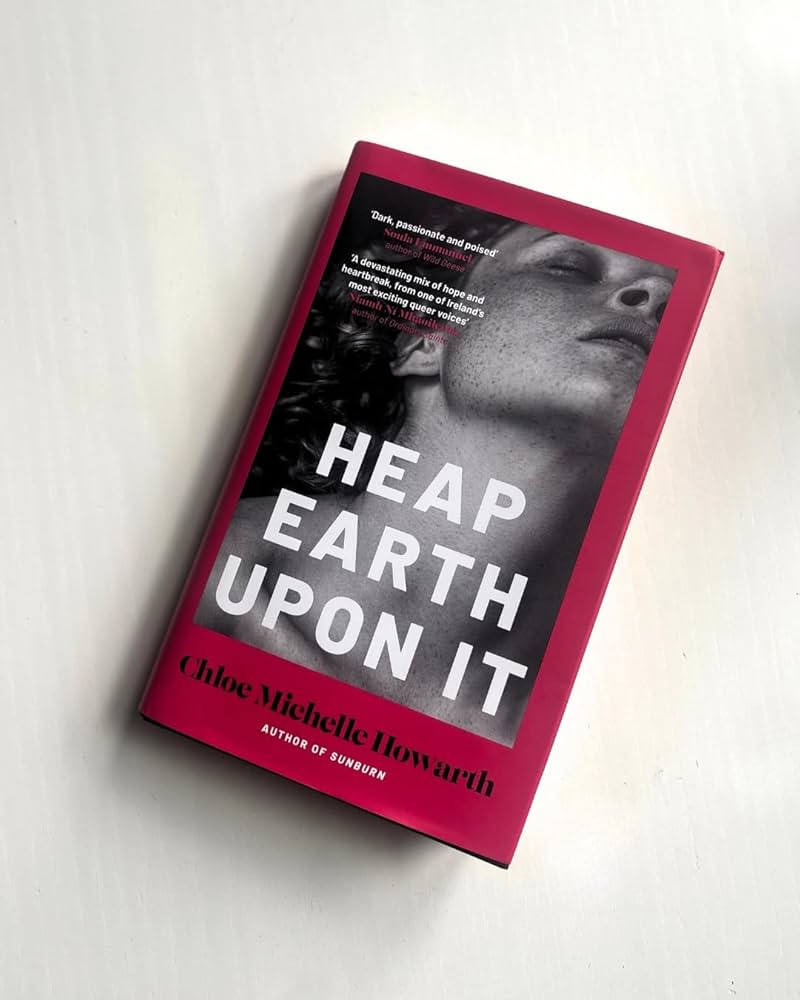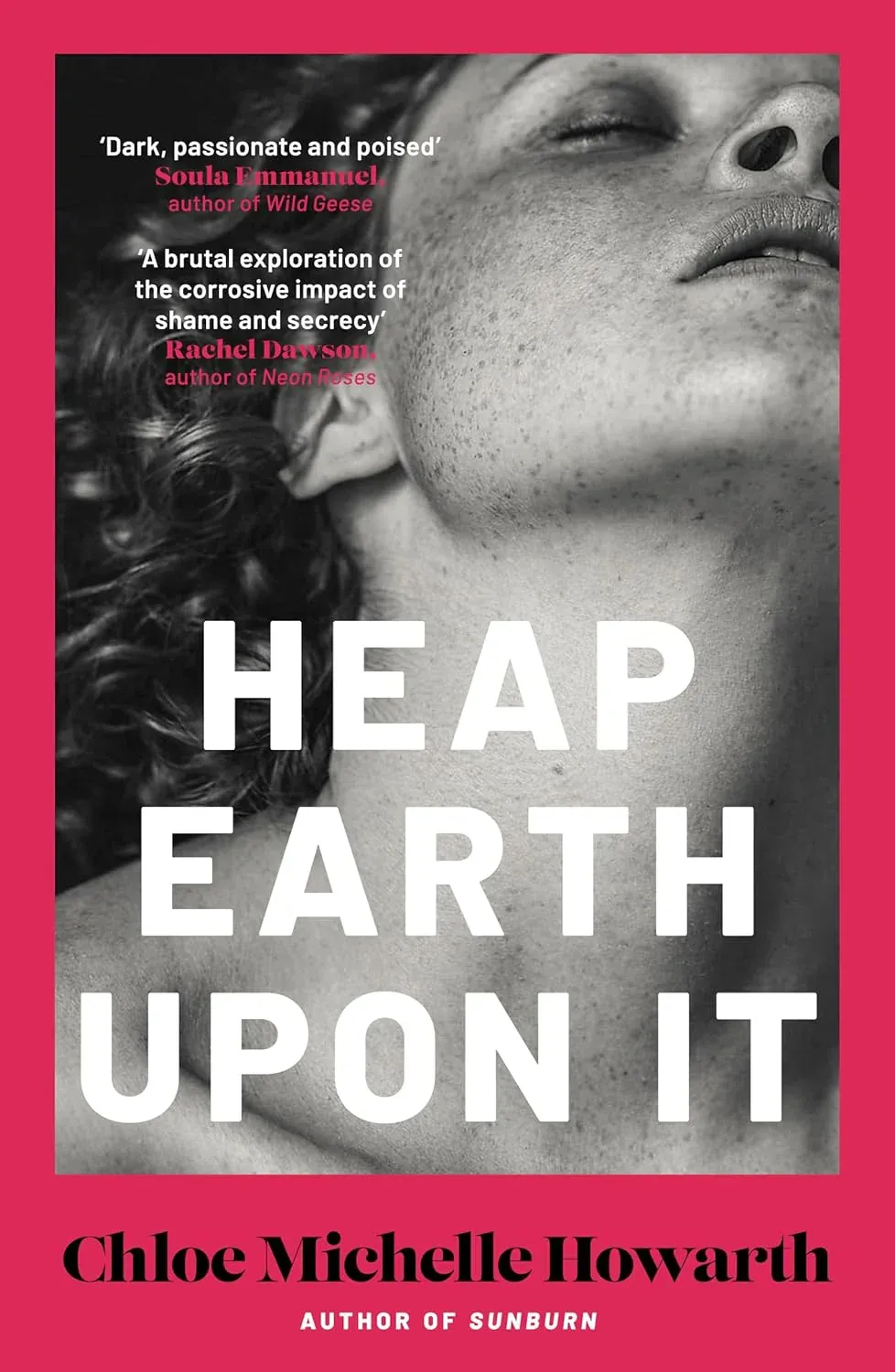Chloe Michelle Howarth's Heap Earth Upon It
Howarth's intricate web of suspense proves masterful: trust becomes currency, and she spends it with devastating precision — a writer excavating how we bury feelings at our peril, and how queer desire persists, insists, even in the most inhospitable soil.

The Architecture of Buried Desire
Howarth's Sunburn announced a formidable talent—one attuned to the psychological undercurrents of rural Irish life, where landscape functions as both sanctuary and trap. I adored it. (read review here) With Heap Earth Upon It, she returns to that beloved, rain-soaked countryside, but this time she queers it more explicitly, excavating desires that her debut only gestured toward.
When the orphaned O'Learys arrive in 1960s Ballycrea—four siblings bound by trauma and silence—their encounter with seemingly benevolent neighbours Bill and Betty Nevan sets in motion a study in obsession that functions simultaneously as family drama and meditation on sapphic longing. Howarth's achievement lies in how she refuses to sensationalize queerness while fully inhabiting its psychological intensity. The slow-burn attachment that develops crackles with the particular danger of unacknowledged desire—that species of wanting that makes relationships claustrophobic precisely because it cannot name itself.
The gothic atmosphere here isn't mere decoration but epistemological necessity. Howarth's prose achieves that quality of seeming lush and tranquil while thrumming with menace—calm rapture edged with doom. Multiple perspectives function as competing truth-claims, each viewpoint revealing how identity itself becomes a tangle of projections and self-deceptions. We excavate the past alongside characters whose very sense of self remains contested territory, the narrative architecture demanding we question whose version of events constitutes reality.

I delighted in how Howarth embeds queerness within this social fabric without diminishing its stakes. This is desire as lived complexity rather than plot device—inseparable from questions of class, family loyalty, and survival in provincial Ireland. The novel maps how marginalized longing operates within restrictive systems, transforming neighbourly attachment into something combustible. By populating this rural landscape with sapphic desire that refuses categorization or reduction, Howarth challenges the historical erasure of queer experience from narratives of Irish country life.
By the final pages, as secrets surface and identities unravel, you'll find yourself reconsidering every gesture, every offered kindness. Howarth's intricate web of suspense proves masterful: trust becomes currency, and she spends it with devastating precision. Heap Earth Upon It confirms Howarth as essential reading—a writer excavating how we bury feelings at our peril, and how queer desire persists, insists, even in the most inhospitable soil.
Out now £16.00, more info or to order see the publisher's website

Support independent LGBTQ+ journalism
Scene was founded in Brighton in 1993, at a time when news stories about Pride protests were considered radical. Since then, Scene has remained proudly independent, building a platform for queer voices. Every subscription helps us to report on the stories that matter to LGBTQ+ people across the UK and beyond.
Your support funds our journalists and contributes to Pride Community Foundation’s grant-making and policy work.
Subscribe today




Comments ()